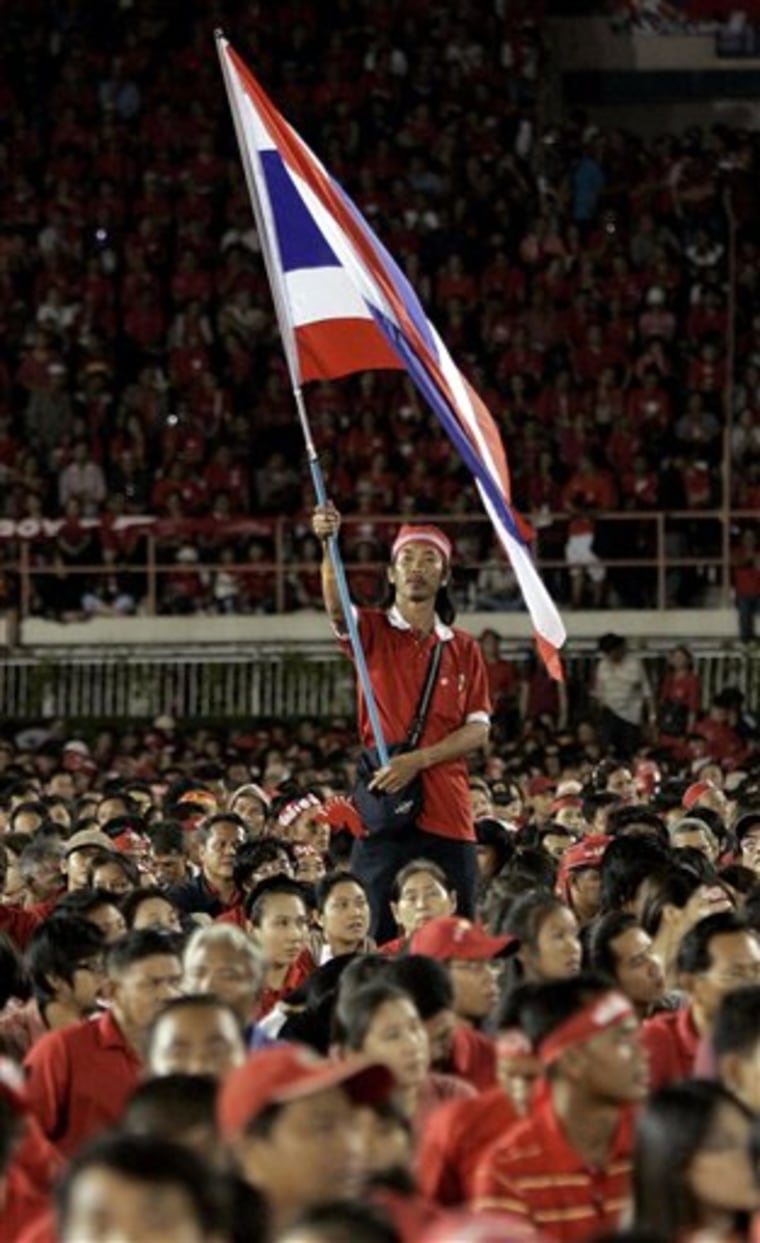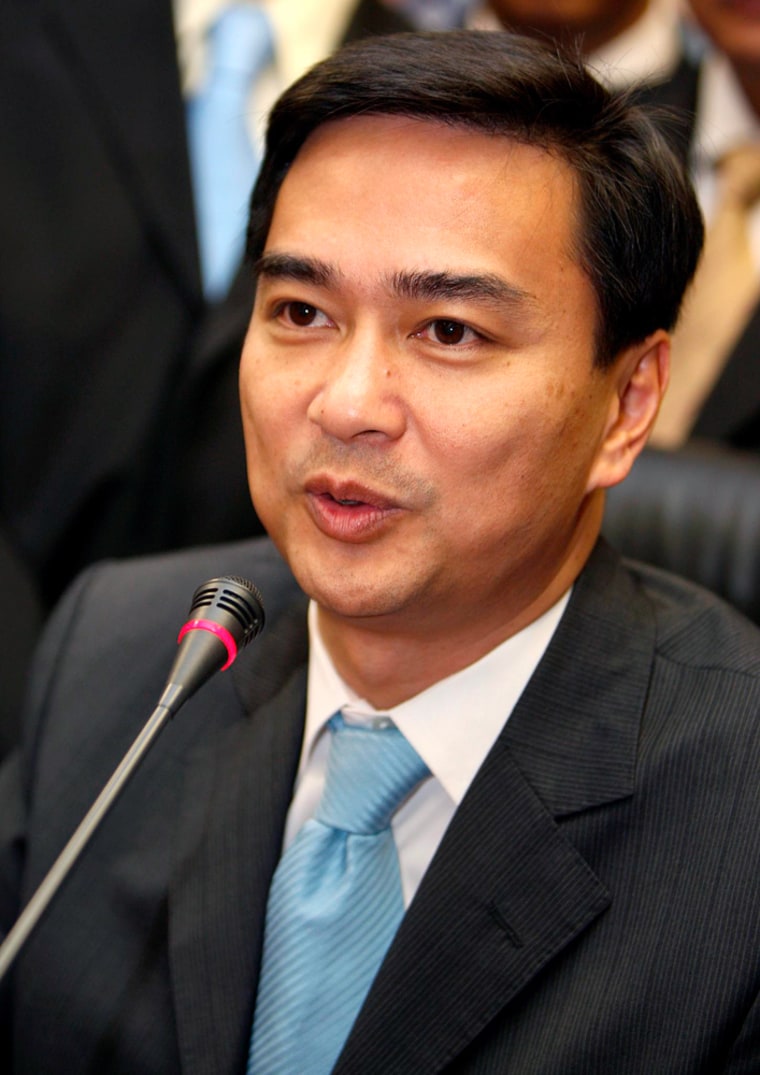Thailand's parliament chose the country's Oxford-educated opposition leader as prime minister Monday, capping six months of violent anti-government protests that included a weeklong takeover of Bangkok's two airports.
The selection of Abhisit Vejjajiva marks the first time in eight years that the government will be led by an opponent of exiled Prime Minister Thaksin Shinawatra, who has loomed over Thai politics since he was ousted by a military coup in 2006.
Abhisit, 44, will face an enormous challenge trying to unite the country — split in part between the middle class that is his base and the rural poor who backed Thaksin — and manage an economy buffeted by Thailand's political turmoil and a global slowdown.
His appointment is expected to bring at least a brief period of calm, although the move unleashed new protests by supporters of the previous government. Abhisit's image as an upper-class elitist also could hinder his attempts to end the turmoil.
In Monday's vote in the lower house of parliament, Abhisit received support from 235 lawmakers, compared with 198 for a pro-Thaksin former national police chief.
Born into 'privilege'
As lawmakers arrived for the vote, Thaksin supporters tried to block the gates of parliament in a last-ditch attempt to prevent the outcome. Riot police later cleared a path for lawmakers to leave the compound. The demonstrators hurled rocks at vehicles and abuse at lawmakers inside but most dispersed peacefully.

Following the vote, Abhisit thanked fellow lawmakers and the public but said he would not talk about politics until he was officially endorsed as prime minister by the constitutional monarch, King Bhumibol Adulyadej. This is expected within several days.
From a wealthy family of Thai-Chinese origin, Abhisit was born in England and educated at Eton and Oxford, where he earned an honors degree in philosophy, politics and economics. His first name means "privilege" in Thai and his friends call him by his foreign nickname, Mark.
He joined the country's oldest party, the Democrats, in 1992 and became one of the youngest ever members of parliament. He rose in the party ranks and in popularity, especially among the educated in Bangkok who took to his clean record, polite demeanor, articulate if somewhat bland speeches and movie-star looks.
The Democrats had been in opposition since 2001, when Thaksin, a former telecommunications tycoon, first took power.
Thaksin was forced to flee the country two years ago amid charges of abuse of power and later convicted in absentia on corruption charges. However, Thaksin, whose whereabouts are unknown, still enjoys significant support among Thailand's rural masses. Until Monday, his supporters had remained in control of the government.
Mixed reaction
Reaction to Monday's vote underscored the country's deep divisions.
Abhisit and his party enjoy strong support from the middle class and many in the business sector. Many of his partisans view Thaksin's rural base as easily manipulated and subject to vote buying.
"It's nice to have someone smart in office for a change," Nutta Tangtrakulchai, a 26-year-old Bangkok office worker. "He is also an economist so he should be savvy about solving the country's most important problem."
But Thaksin supporters feared that Abhisit would neglect the country's poor.
"Abhisit was born with a silver spoon in his mouth. He knows nothing but wealth and privilege. How can he solve our problems?" said Chaiya Paitoonsiri, a taxi driver from the province of Maha Sarakam, 240 miles northeast of Bangkok.
Monday's vote ended six months of instability caused by anti-government demonstrations that began with a takeover of Thailand's government house and culminated with last month's airports takeover.
Cooking show a conflict of interest
In September, then-Prime Minister Samak Sundaravej was removed from office after a court ruled that his appearance on a TV cooking show was a conflict of interest.
His successor, Somchai Wongsawat, was removed from office 10 days ago by the country's constitutional court. Somchai declined to comment on Monday's vote.
Sukhum Nuansakul, a political scientist at Bangkok's Ramkhamhaeng University, said any respite from Thailand's political instability was likely to be short-lived.
"The fundamental problem has not been resolved," Sukhum said. "A Democrat win sets the stage for another round of street protests, this time by pro-Thaksin groups."
Abhisit will also face economic woes resulting from both the global slowdown and a domestic climate of uncertainty.
